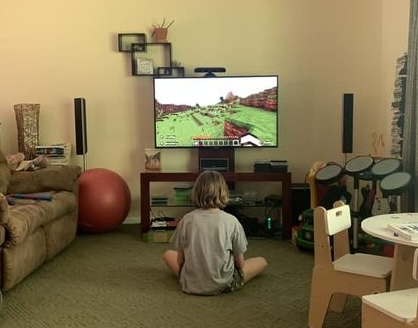I can't begin to say everything I feel about video games... from my beginning ambivalence / aversion / annoyance / fear / more fear, etc. all the way to today's complete acceptance of my child's love and devotion to figuring out a game, his determination, his focus, his interest, his ability to explain it, talk about it passionately, willingness to give Ravi and me tutorials/workshops on a game etc.
He is currently playing a game that is about a guy in school. And the classes need you to figure out games/words/math etc. Then you pass the game. I help him out with certain parts when he asks for it. Been very interesting to watch his intensity in figuring out those puzzles/tests that the school teachers are throwing out to this character. The character gets bullied and keeps getting detention. And Raghu is wondering why this is so. Leads to conversations about the way the video gamer designed the game.
—Hema Bharadwaj
2010
2010
photo by Penny Clarkson



